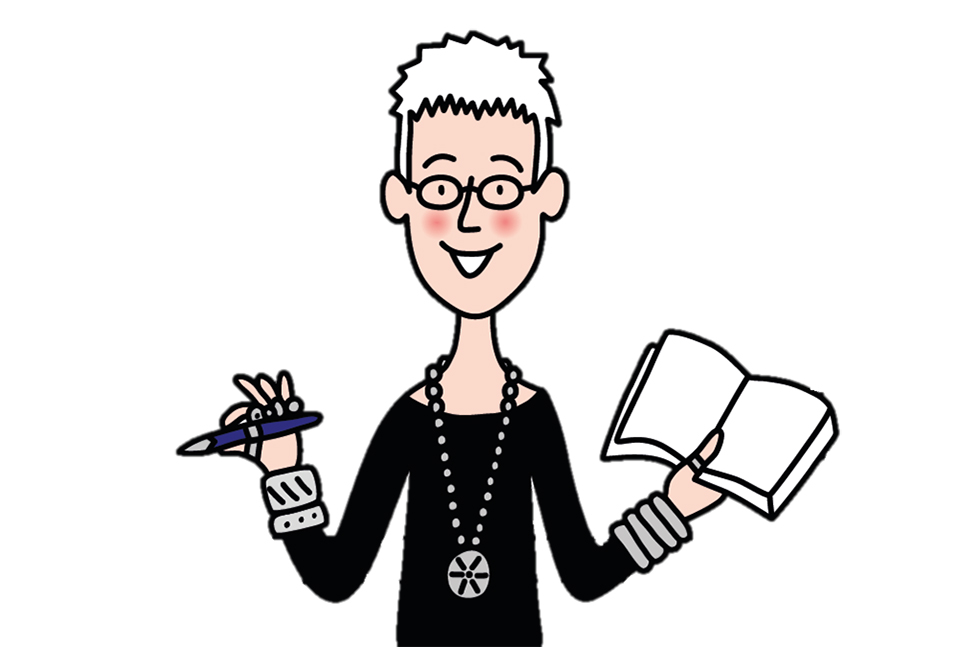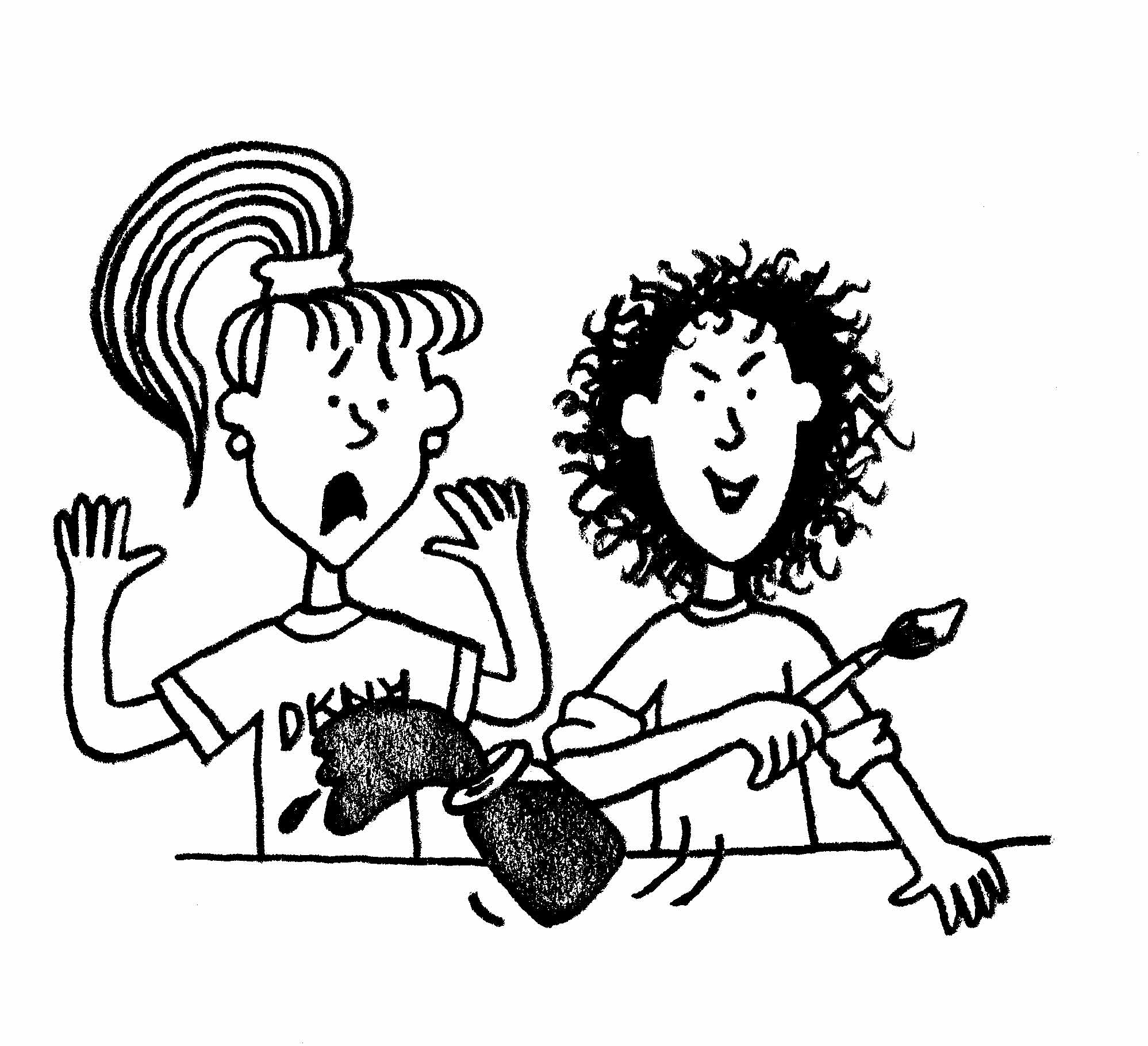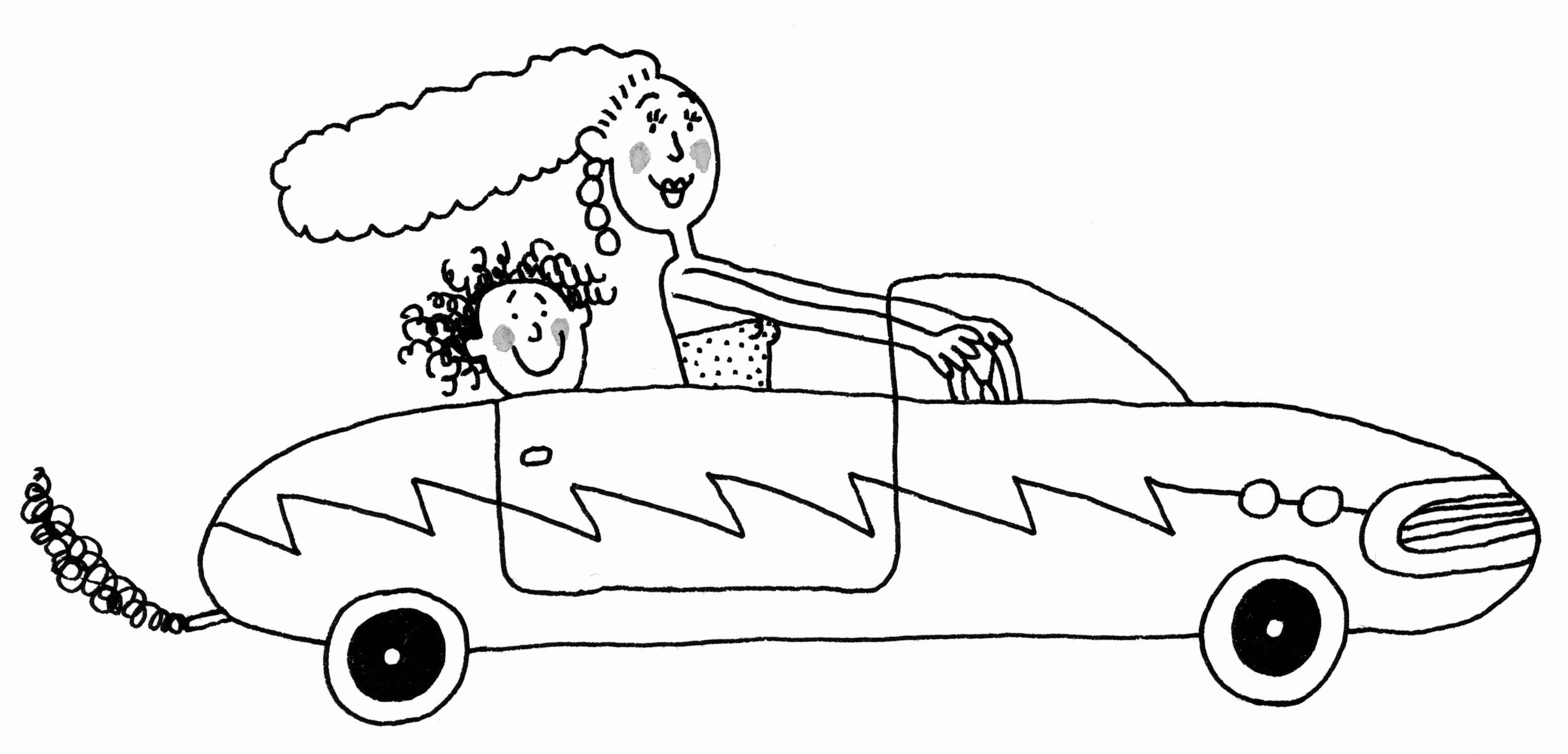- Home |
- Search Results |
- How to write a brilliant story
How to write a brilliant story
Looking for tips on how to be brilliant at creative writing? Jacqueline Wilson gives us her best advice and ideas, so you too can be a master storyteller.

1. How to come up with ideas
It’s the most frequently asked question: Where do you get your ideas from? Sometimes it can be something you see by chance. I saw a heavily tattooed woman with two small daughters in Central Park, and my own daughter Emma whispered that they looked like the sort of family I’d write about. That’s how I wrote The Illustrated Mum.
Another gift was seeing photographs of children in my local newspaper, all needing foster parents – this gave me the idea for The Story of Tracy Beaker. Just occasionally other people give me ideas – talk about the Director of the Foundling Museum asking if I’d ever considered writing a book about a foundling child – that’s how Hetty Feather sprang to life. Everyone gets their ideas in different ways
2. How to create characters
I think the most important part of writing a story is getting to know your characters and making them seem real.
Did you ever have imaginary friends when you were little? It’s a similar process. Hold conversations with your characters in your head. Don’t just think about their looks, though I always like to give some idea what sort of hairstyle my girls and boys have, and what sort of clothes they wear. But mostly I care what they’re like inside.
Are they happy, sad, shy, cheeky, funny, naughty? What are their hobbies? What are their favourite television programmes? What’s their favourite food? Do they like school? What’s their best subject? How do they get on with their mum or dad and siblings? Do they have a best friend? Do they want a best friend?
Think it all through, jot things down. You probably won’t need to put half these things in your story but somehow it will help bring your characters alive on the page.
3. How to start your story

This is the difficult bit! No-one likes looking at a blank page or screen. It’s so hard to know how to start. Everyone always says a story needs a really good eye-catching beginning – but of course, that makes you go all self-conscious and unable to think of even one simple sentence.
My tip would be to pretend you’ve got the most amazing piece of news and you’re dashing into school to tell your best friend all about it, and you just have to seize hold of them and give them the whole story straight away, making it as amusing and astonishing as possible so that you keep their full attention. I don’t think you need several paragraphs of description and explanation before you get started on the story. Jump straight in. And do you know what I mean by Show not Tell? Okay, two ways to start a story:
NUMBER ONE. George walked along the road with his mother. He was feeling fed up and miserable. He wanted a bar of chocolate but his mother said no. George was cross.
OR George trudged along the road, scuffing the toes of his trainers. Miss Horrible Hawkins had been moaning about his spelling and handwriting again. And Wayne the Pain had snatched George’s lunch-time crisps and his Whizzo Wonder Bar. ‘I’m starving. Can I have a chocolate Whizzo, Mum?’ asked George. ‘No, of course not. You’ve already had one today,’ said Mum. George sighed and stuck his bottom lip out.
The first version is fine, but we’re being told it all. It’s a bit dull. I think the second version is better. It brings it all alive.

4. How to make something happen
Think of all the stories you’ve ever read, short stories, small books, huge great long books with hundreds of pages. They start. Then something happens. Often lots of things. And then they finish.
It doesn’t matter what sort of story you write, it’s good to have a bit of conflict – a bit of a struggle, something going wrong, something surprising – and your main character has to try to sort it all out.
A princess might be locked up in a castle and she has to escape. A boy has lost his dog and has to find him. A dinosaur is suddenly spotted walking down the High Street, nibbling the treetops. It’s up to you to let the story evolve. Sometimes it’s good to work it all out beforehand so you don’t get stuck halfway through.
Though sometimes it works just to write at white-hot speed and see what happens without planning anything at all. There’s no one way of writing. Everyone’s different. If you’ve got started on your story but are stuck in the middle, try talking inside your head to your main character. Ask them what would really worry them? Then write it, and see how they cope.

5. How to end a story
That’s the best bit. You’ve written and written, and now you’ve nearly finished the story. You can’t wait to write THE END after the last line.
It’s a terrible temptation to hurry things along because if you’re anything like me you just want to be finished with the whole thing. I used to find I wrote the last few pages of my stories too quickly, in a hasty scrappy sort of way, and then an editor (they’re a bit like your teacher, and even pickier) would suggest I rewrite part and expand it and think it all through carefully.
Now I try to give the last chapter even more time and attention than the first. I try to round everything off in a satisfying way. That doesn’t mean I always spell everything out. Sometimes I deliberately leave my readers to work out what’s going to happen next, though I always give a heavy hint. (Lots of you want to know if Lily gets reunited with her family in Lily Alone – or does Destiny make it as a famous singer in Little Darlings – or will Hetty ever get together with Jem?) I wanted to keep all the options open – but if you find my endings disconcerting you’re always free to write your own versions.
I always try to write reasonably happy endings – but occasionally characters play tricks on me and won’t do as I tell them. I think my saddest book is My Sister Jodie. I had no intention of making it end like that – but somehow my hand wrote the story in a very unexpected dramatic way.
So, let’s say you’ve taken your time over your ending and are pleased with your story. I’m afraid you’ve still got a little work to do, especially if it’s a story for school, for a special project, for a competition. Read it through. See if there are parts that don’t seem very important, or they’re maybe simply a bit boring. How can you improve them? Could you pop something new in that will make your story seem more interesting?
Have you checked all your spellings and remembered all your punctuation? I know, these are the boring parts. I hate fussing over everything too – but it’s truly worth it. It’s often only when I’ve got to this stage that a sudden really good idea occurs to me. I don’t like rewriting – but it’s generally vitally necessary. You want your story to be as good as possible, don’t you?
The best part of ending my book for me is sending it to my friend the illustrator Nick Sharratt. He’ll read my story very carefully, often several times, and then send me a few illustrations of the characters. He always gets them exactly how I imagined them – it’s uncanny.